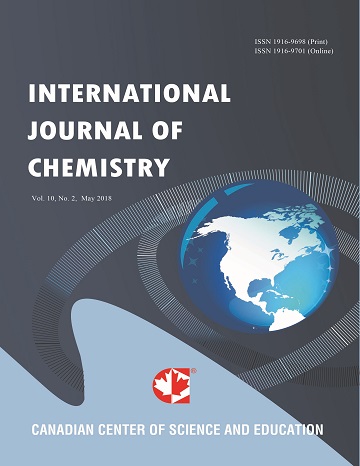Optimization of Extraction Condition and Characterization of Malva Verticillata Root Bark Mucilage
- P. Korir
- A. Salim
- J. Odalo
- W. Waudo
- L. Gitu
- Amir Yusuf
Abstract
The study aimed at optimizing the extraction conditions and establishing the physicochemical properties of the mucilage obtained from root bark of Malva verticillata. Effects of temperature, time, particle size and amount of water as a solvent on the yield and composition of mucilage were established. Micrometric, physical, chemical and structural properties were used to characterise the extracted mucilage. Result showed significant correlation between extraction conditions and mucilage yield. Low temperature and short extraction time results into pharmaceutically valuable mucilage with low protein content, high viscosity and good dispersion in aqueous solvent. Large and small size particles of the plant material results into low mucilage yield without significant difference (p=0.054). The mucilage shows mixed cohesiveness with less tendencies to flow. It exhibits vibration bands in FTIR that are associated with the presence of polysaccharides and proteins. The mucilage contains 2.65% protein, 13.83% inorganics, 1.85% fats, and the rest carbohydrates. High extractive value ˃80% and moisture content ˃12% implies that mucilage has high tendency to microbial attack. Optimized extraction conditions results into high yield of the mucilage with the same physicochemical properties and mineral composition regardless of the plant material sampling sites.
- Full Text:
 PDF
PDF
- DOI:10.5539/ijc.v10n2p1
Journal Metrics
h-index (December 2022): 32
i10-index (December 2022): 145
h5-index (December 2022): N/A
h5-median(December 2022): N/A
( The data was calculated based on Google Scholar Citations. Click Here to Learn More. )
Index
- Academic Journals Database
- Bibliography and Index of Geology
- CAB Abstracts
- CAS (American Chemical Society)
- COPAC
- Elektronische Zeitschriftenbibliothek (EZB)
- EuroPub Database
- Excellence in Research for Australia (ERA)
- Genamics JournalSeek
- Google Scholar
- Infotrieve
- Mendeley
- MIAR
- RePEc
- ResearchGate
- ROAD
- SHERPA/RoMEO
Contact
- Albert JohnEditorial Assistant
- ijc@ccsenet.org
